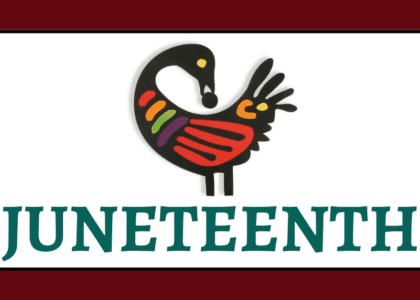By James Lamkin
An old piano bench was one of my earliest theological classrooms. Aunt Dorcas was my teacher, and the curriculum was an unlikely Victorian ballad, written by Michael Maybrick in 1892: The Holy City. It was one of her favorite songs.
If you don’t know the piece, it dreams of “the heavenly Jerusalem.” It sings of God’s grandeur and glory. It laments God’s grief, wearing a cruciform shadow. Finally, the light of God’s relentless Easter dawns, the city gates open wide, all are welcome, and no one is excluded.
That’s quite a sentimental journey—and theological imagery—in only three stanzas!
When my sister was six years old and I was ten, we loved it when Aunt Dorcas came to visit and invited us to sit beside her on the piano bench as Grandmother’s old upright towered above us. The piano had been through a fire. Blackened bubbles covered every inch, and the ivory keys were as yellow as a witch’s teeth. Though the piano bore the scars of trauma, Aunt Dorcas showed no mercy. She pounded away; her charm bracelet jingled in accompaniment. Passionate singing plus fervent playing made for a tsunami of sound. Our small bodies felt the percussion.
You’d think relief would come at the page-turn; but, no. Without missing a beat, she would lick her thumb, grab the page corner, and flip it like a jiu jitsu master.
At full throttle, we’d hear, “Jerusalem, Jerusalem, lift up your gates and sing!” The surround sound of multiple hosannas besieged us. Hosanna forever more. Whew!
These memories came flooding back recently on Palm Sunday. My wife Liz and I were sitting on the chancel of Northminster Church (an Alliance partner) in Monroe, La. We were there to lead in worship. Following a scripture reading, and preceding my sermon, the choir sang a response arranged by the Northminster organist, Rev. Dr. D.H. Clark. I recognized it immediately. It was a small snippet from The Holy City.
Suddenly, I was ten years old again, sitting beside Aunt Dorcas on the piano bench. My mind raced ahead to the song’s punchline: “The light of God was on its streets, the gates were open wide, and all who would might enter, and no one was denied.”
Hear that? All might enter. No one denied.
I confess that I’ve lived too much of my life as a border patrol guard—a sentry watching for who’s theologically in and who’s out. Why need a gatekeeper, if the “gates are open wide?” Easter asks that I repent and return to the words I first heard sitting by Aunt Dorcas long ago: God’s inclusive welcome is wider than my constricted insecurity.
Three Alliance of Baptists congregations have helped me keep the song going. Years ago, the breadth of interfaith partnership and gratitude broadened me as I preached at Northminster Church which first met in the sanctuary of Temple B’nai Israel.
Thirty years ago, I learned from Ravensworth Baptist Church in Annandale, Va., as we took baby steps toward welcoming and affirming of LGBTQ persons. Plus, Ravensworth has been a consistent witness for justice regarding Palestinians. Any ballad about Jerusalem must include a lament and a longing for action.
I’m grateful to Northside Drive Baptist Church in Atlanta, Ga. They encouraged me as we waded into deep and wide interfaith waters parted by the tragedy of 9/11 and then traveled the world with pilgrims of all faiths.
Plenty of sacred (and some schmaltzy) songs have passed through my soul since I sat transfixed beside Aunt Dorcas. I am glad that lyrics from The Holy City, a ballad larger than I first knew, can still haunt me. I am glad that a brief choral response on a garden variety Palm Sunday morning has the power to transport me beyond a mere sentimental journey, but into a holy one.
God has gifted me with classrooms shaped like pulpits, pews, piano benches, and congregations. I am wealthy with reminders of God’s wide welcome.

James Lamkin has been connected with the Alliance of Baptists since 1990. His wife Rev. Liz Harris-Lamkin was the first military chaplain endorsed by the Alliance. James recently retired from Northside Drive Baptist Church in Atlanta, Ga., after serving as pastor for 23 years. He has a son and a daughter and four grandkids.




Nice, to know what inspires you and that you care enought to share that with others.
James,
Here I am again approaching Easter (March 27, 2024) with timid feet – and you have cleared the cobwebs with Aunt Dorcas and The Holy City. Thank you for the storytelling, the friendship, and the caring heart as I again look for the opening door to Easter.
God be with you and Liz, my friends. We are only a call away!
Ruth Kramedjian